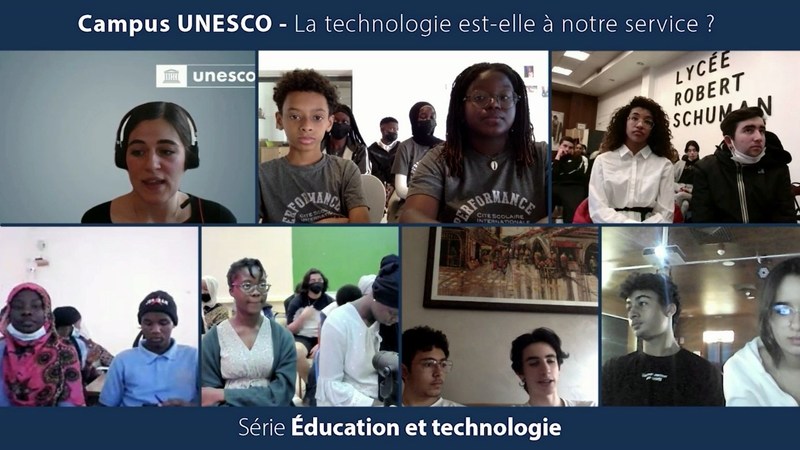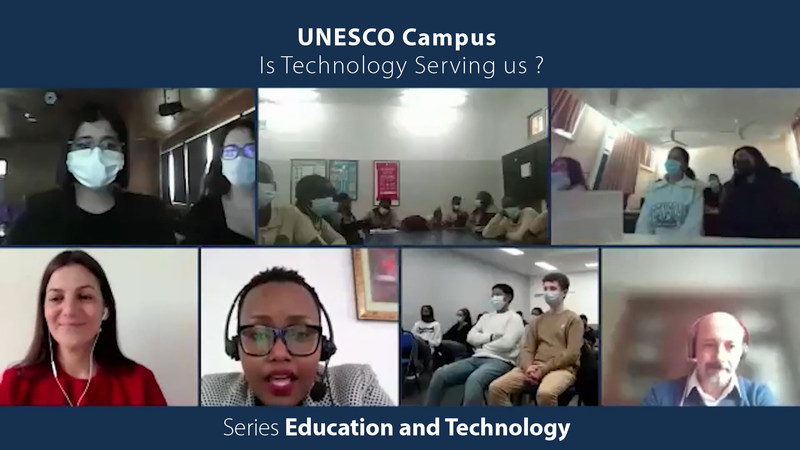UNESCO and Huawei have to date run ten Campus UNESCO sessions, focusing on technology and education and reaching students from 39 schools in 21 countries.
Campus UNESCO is an ongoing program that gives young people aged 14 to 18 the chance to share views with experts from UNESCO and civil society. The topics discussed in each 90-minute session in either English or French are linked to major UNESCO themes such as education, artificial intelligence, sustainable development, gender equality, and citizenship.
Huawei has been partnering with UNESCO on the program since June 2021. The sessions have covered a wide variety of topics, including the relationship between technology and education, new technologies for today and tomorrow, and how technology can be used for good. Topics relevant to current issues that rose on the global agenda when the pandemic closed school doors in 2020 were especially welcomed by the students, including the changes brought to schools that either have or lack technology, and the necessity of physical schools when everything can be found on the Internet.
“We believe the SDG and COVID challenges are incredible ingredients for innovation,” said Dr. Valtencir Mendes, Senior Programme Specialist, UNESCO at one of the campuses.
Other issues of focus during campus sessions have been the value of digital skills and new behaviors to prevent cyberbullying, a threat that is on the rise for many teenagers in an increasingly digital world where social media is prevalent and when young people are outside the classroom.
Sharing their experiences and views with expert speakers can raise awareness among young people, not just about how new technologies will impact today and tomorrow, but the role that today’s teenagers can have in shaping the future.
As well as UNESCO experts, other speakers include inspirational people from the organization’s networks, such as NGOs, IGOs, startups, spanning a wide range of roles, including scientists, researchers, and local development project managers.
Aligned with the aims of Campus UNESCO, Huawei and UNESCO are also partnering on the “Technology-enabled Open Schools for All” project, the implementation phase of which was launched in 2021 in Ghana, Egypt, and Ethiopia. The three-year project is supporting the construction of resilient education systems that can withstand global disruptions such as COVID-19. In addition to connecting schools, the project is providing training for teachers and students in the use of digital tools, establishing online platforms to link school and home learning, and developing digital curricula that can be accessed remotely.
The “Technology-enabled Open Schools for All” project is aligned with the Tech4Education domain of Huawei’s digital inclusion initiative TECH4ALL, which aims to drive education equity and quality with technology under the major aim of TECH4ALL: to leave no one behind in the digital world.
View the series on the Huawei TECH4ALL official website:
https://www.huawei.com/en/tech4all/stories/bridging-technology-education-campus-unesco
Photo – https://mma.prnewswire.com/media/1816487/image_1.jpg
Caption – One of the campus real-time screenshot
Photo – https://mma.prnewswire.com/media/1816488/image_2.jpg
Caption – The campus in French language real-time screenshot

